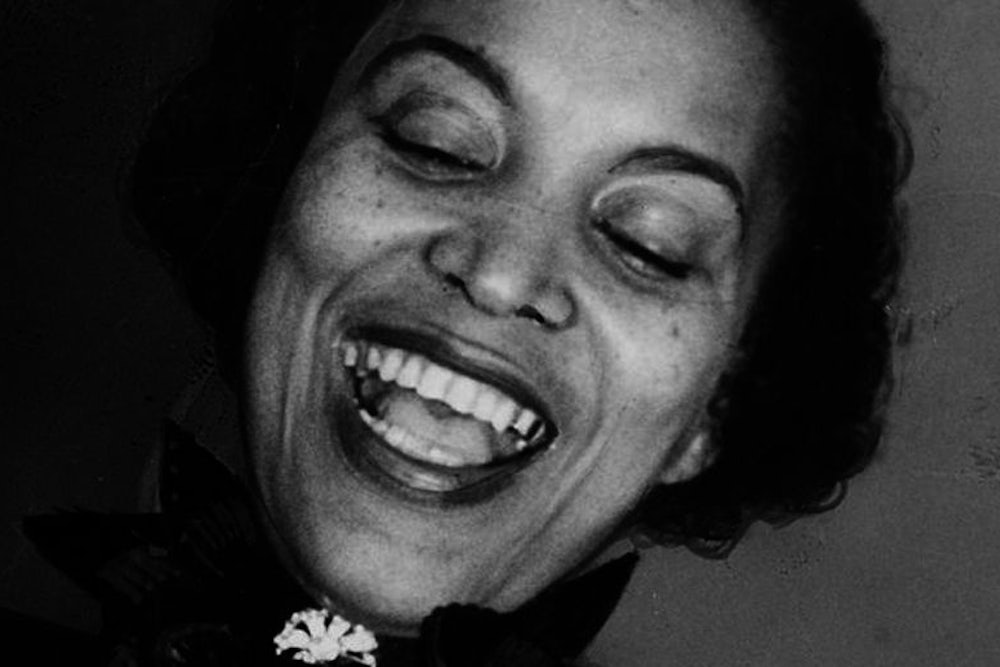You Can't Hear Their Voices
October 13, 1937
Review of Zora Neale Hurston's Their Eyes Were Watching God
It isn’t that this novel is bad, but that it deserves to be better. In execution it is too complex and wordily pretty, even dull—yet its conception of these simple Florida Negroes is unaffected and really beautiful. Its story comes mostly through the person of Janie, a mulatto girl carefully married off to a proper fellow whom she ran away from shortly because that wasn't love and living as she hoped it would be. And her second husband, though he built a town and promoted for himself a main place in its life, cooped her up and smothered her with rectitude until he died, leaving her wiser with middle age, and still handsome.
Through these chapters there has been some very shrewd picturing of Negro life in its naturally creative and unself-conscious grace (the book is absolutely free of Uncle Toms, absolutely unlimbered of the clumsy formality, defiance and apology of a Minority Cause). And when Tea Cake swaggers in with his banter and music and rolling bones and fierce tender loyalty, there is a lot more picturing of what we would never have known: Darktown and the work on the Everglades muck, the singing and boasting and play-acting, people living the good life but, in the absence of the sour and pretentious and proper, seeming to live it in a different world. It is the time of the Big Blow in Florida, and though Tea Cake and Janie fought through it, the aftermath left the man with hydrophobia, and she had to kill him like a dog. Janie went back to her town after that, her late years to be mellowed with the knowledge of how wide life can be.
If this isn't as grand as it should he, the breakdown comes in the conflict between the true vision and its overliterary expression. Crises of feeling are rushed over too quickly for them to catch hold, and then presently we are in a tangle of lush exposition and overblown symbols; action is described and characters are talked about, and everything is more heard than seen. The speech is founded in observation and sometimes wonderfully so, a gold mine of traditional sayings. "Don't come to me with your hair blowing back," someone says. Or, "My old woman . . . get her good and mad and she'll wade through solid rock up to her hip pockets"; "She ain't a fact and neither do she make a good story when you tell about her." Or such phrases in their proper place as "Well all right then," and "Got the world in a jug." Or such vivid simple picture making as a comment on great wind and thunder: "Big Massa draw him a chair upstairs." Or illustrations from natural life, as in the case of the old girl who said you didn't have to worry about her blabbing; she was like a chicken—"Chicken drink water but he don't pee-pee."
But although the spoken word is remembered, it is not passed on. Dialect is really sloppy, in fact. Suggestion of speech difference is a difficult art, and none should practice it who can't grasp its first rule—that the key to difference must be indicated by the signature of a different rhythm and by the delicate tampering with an occasional main word.
To let the really important words stand as in Webster and then consistently misspell all the eternal particles that are no more than an aspiration in any tongue, is to set up a mood of Eddie Cantor in blackface. The reader's eye is caught by distortions of the inconsequential, until a sentence in the supposedly vernacular reads with about this emphasis: "DAT WUZ UH might fine thing FUH you TUH do.'"
And so all this conflict between the real life we want to read about and the superwordy, flabby lyric discipline we are so sick of leaves a good story where it never should have been potentially: in the gray category of neuter gender, declension indefinite.
